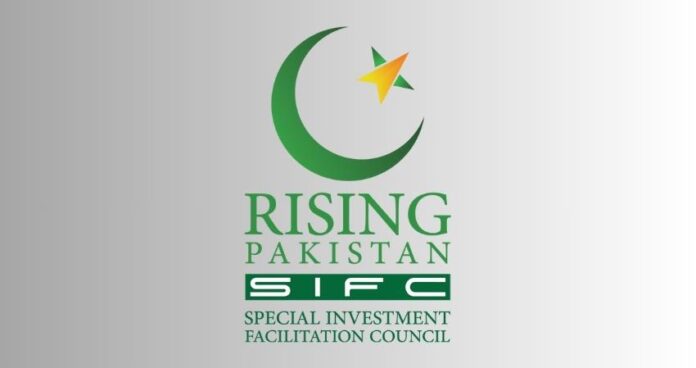Islamabad, Apr 15, 2025: The Special Investment Facilitation Council (SIFC) has been pivotal in driving business transactions worth $148 million through mergers and acquisitions in key sectors during the first eight months of the fiscal year 2024-25, according to a recent report.
Foreign direct investment (FDI) in Pakistan surged by 41% in this period, totaling $1.618 billion.
This remarkable growth is attributed to the SIFC’s role in enhancing coordination among government agencies, reducing bureaucratic hurdles, and facilitating major deals in industries such as energy, agriculture, technology, and finance.
Introduced as a “single window” service for investors, the SIFC has played a crucial role in fostering collaboration between government departments and speeding up project investments in diverse sectors like defense, agriculture, infrastructure, IT, and energy.
Read More: SIFC EC Approves Revised Cost for Sialkot-Kharian Motorway
These efforts have greatly bolstered investor confidence and streamlined regulatory approval processes.
The SIFC’s involvement has led to several high-profile foreign investments, such as Aramco Asia’s purchase of a 40% stake in GO Petroleum, MNT-Halan’s acquisition of Advans Pakistan Microfinance Bank, and Euricom SPA’s purchase of a 50% share in Fatima Euricom Rice Mills.
Additional key deals include Aquashore SA acquiring a 50% stake in Total Parco Pakistan Ltd and Wafi Energy securing a 77.42% stake in Shell Pakistan, strengthening Pakistan’s relations with the Gulf region.
The report highlights that the SIFC has also supported investments in Pakistan’s fintech and logistics sectors, with Bazaar Technologies securing over $100 million in funding and a joint venture between National Logistics Corporation and DP World Logistics aimed at enhancing the country’s infrastructure.
Moreover, the SIFC has facilitated growth in the mineral sector, notably through the Pakistan Mineral Investment Forum 2025 held in Islamabad on April 8-9.
This forum emphasized the investment opportunities in mining and policy reforms, leading to several Memorandums of Understanding (MoUs) to foster new business partnerships.
Looking forward, the SIFC has set a short-term FDI target of $5 billion and aims to attract $100 billion in foreign investment in the long term.
The council’s initiatives are part of a comprehensive strategy to increase Pakistan’s GDP to $1 trillion by 2035, positioning the nation as an appealing destination for global investors.
